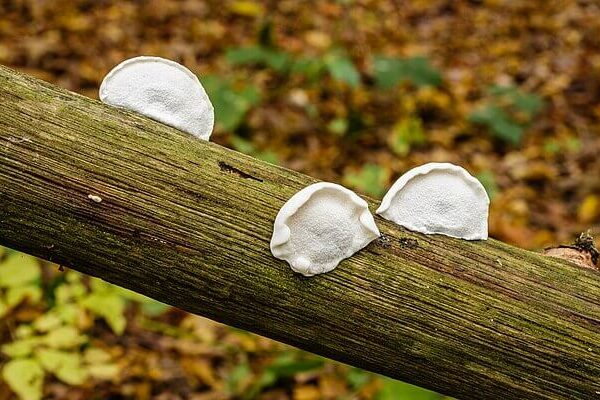
Within the depths of the forest, certain fungi establish a connection with trees and fallen logs, breaking them down and metabolising the carbon residing within their wooden structures before releasing it into the atmosphere as carbon dioxide.
However, a recent study, published on July 26 in the journal PLOS One, has unveiled an intriguing twist to their dietary preferences—when their usual sustenance is lacking, these wood-degrading fungi can instead devour plastic.
The study highlights the capacity of white-rot fungi to dismantle lignin, an incredibly robust organic polymer that lends rigidity to wood. This degradation process is facilitated by enzymes, which serve as catalysts for the cellular chemical reactions.
“We were thinking, if these fungi can decay these decay-resistant hardwoods, and lignin particularly … they have some weapons with them to decay some other polymers as well,” such as polyethylene, or plastic, study co-author Renuka Attanayake, a plant pathology professor at the University of Kelaniya in Sri Lanka, said.
To conduct their investigation, the researchers gathered 50 fungal samples from decomposing hardwoods found in Sri Lanka’s Dimbulagala dry zone forest reserve. These samples were subjected to two primary experimental scenarios: one featuring low-density polyethylene (a type of plastic), and the other involving both plastic and wood. Over a span of 45 days, the findings were evident—the fungi exhibited a consistent preference for wood over plastic. However, even in setups predominantly composed of plastic, the fungi demonstrated the ability to break down polyethylene.
“We think that these organisms are metabolically flexible, I would say, and this may be an evolutionary advantage,” Attanayake said. “[The fungi] had to survive in the environment utilizing whatever available.”
While the exact alterations that occur within the fungi’s chemical pathways during the digestion of polyethylene remain unknown, it has been observed that these white-rot fungi employ oxidising enzymes to disintegrate both wood and plastic.
A significant number of more than 430 fungi and bacterial species have already been identified as contributors to plastic degradation, as confirmed by the Royal Botanical Gardens Kew in London. Scientists envision that deciphering and duplicating the enzymes secreted by these microorganisms to facilitate plastic breakdown could potentially address a fraction of the colossal plastic waste dilemma—over 400 million tons are generated annually, with much of it languishing in landfills or infiltrating oceanic environments.
Although this newfound study marks a “modest initial step” in comprehending how fungi might combat plastic pollution, it raises important questions about the adaptability of wood-degrading fungi in diverse settings, such as landfills, and the potential implications they might have for indigenous tree populations. According to Attanayake, one of the researchers involved, while this avenue holds promise, extensive research remains a prerequisite before any practical applications can be envisaged.
——————————————————————————
At Natural World Fund, we are passionate about stopping the decline in our wildlife.
The decline in our wildlife is shocking and frightening. Without much more support, many of the animals we know and love will continue in their decline towards extinction.
When you help to restore a patch of degraded land through rewilding to forests, meadows, or wetlands, you have a massive impact on the biodiversity at a local level. You give animals a home and food that they otherwise would not have had, and it has a positive snowball effect on the food chain.
We are convinced that this is much better for the UK than growing lots of fast-growing coniferous trees, solely to remove carbon, that don’t actually help our animals to thrive.
This is why we stand for restoring nature in the UK through responsible rewilding. For us, it is the right thing to do. Let’s do what’s right for nature!
Donate today at https://naturalworldfund.com/ and join in the solution!

